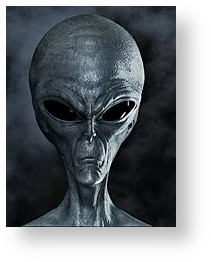earthlings.inSite21.com
An Intergalactic Report and Travel Advisory
Excerpts from Research Findings on Earthlings
October 13, 2025
An Intergalactic Report and Travel Advisory
Excerpts from Research Findings on Earthlings
October 13, 2025
Secret Societies and Cults
Secret societies and cults are two distinct types of groups that have been subjects of fascination and intrigue throughout history. While they share some characteristics, they also have significant differences in their nature and objectives. Here's an overview of each:
Secret Societies:
1. Definition: Secret societies are groups that restrict access to their membership and activities, keeping them hidden from the general public or outsiders.
2. Secrecy: Secrecy is a defining feature of secret societies. They often have rituals, passwords, and symbols that are known only to members.
3. Objectives: Secret societies may have various objectives, ranging from social networking, camaraderie, and mutual support to maintaining traditions, preserving knowledge, or promoting specific ideologies or beliefs.
4. Historical Examples: Examples of secret societies include the Freemasons, the Illuminati (historical and modern conspiracy theories), and the Skull and Bones at Yale University. Many secret societies have historical roots and have been portrayed in literature and popular culture as having mysterious or clandestine activities.
5. Notable Characteristics: Secret societies are generally voluntary associations, and their activities are typically legal and non-threatening to society. While some have been involved in political movements or historical events, most secret societies are more focused on the personal and social connections among their members.
Cults:
1. Definition: The term "cult" is often used to describe a religious or spiritual group that has deviated significantly from mainstream religious beliefs and practices. It is important to note that the term "cult" can be pejorative and has been associated with negative connotations.
2. Leadership and Influence: Cults often revolve around a charismatic leader who wields significant influence over their followers. This leader is usually seen as possessing unique spiritual insights or divine authority.
3. Psychological Manipulation: Cults may employ psychological manipulation techniques to control and indoctrinate their members. This can include isolation from family and friends, information control, and the use of coercive persuasion methods.
4. Beliefs and Practices: Cults often have unorthodox beliefs and practices that are not widely accepted within mainstream religious traditions. These beliefs may be based on the teachings of the leader or interpretations of sacred texts.
5. Controversies: Some cults have been associated with harmful practices, such as financial exploitation, emotional abuse, and even criminal activities. Not all cults engage in harmful behaviors, but those that do have attracted significant media attention and scrutiny.
It's essential to approach discussions about secret societies and cults with a critical and informed perspective. While secret societies may have historical significance and are often the subject of curiosity, cults can have a more problematic reputation due to potential abuses and harmful practices. It's important to differentiate between groups that operate with transparency, legality, and respect for individual rights and those that may engage in harmful or exploitative behaviors.
See also: Cults of Elitism

-------- Contents --------
---- Sapiens ----
---- Travel Advisory ----
---- Are you the problem? ----
Secret societies and cults are two distinct types of groups that have been subjects of fascination and intrigue throughout history. While they share some characteristics, they also have significant differences in their nature and objectives. Here's an overview of each:
Secret Societies:
1. Definition: Secret societies are groups that restrict access to their membership and activities, keeping them hidden from the general public or outsiders.
2. Secrecy: Secrecy is a defining feature of secret societies. They often have rituals, passwords, and symbols that are known only to members.
3. Objectives: Secret societies may have various objectives, ranging from social networking, camaraderie, and mutual support to maintaining traditions, preserving knowledge, or promoting specific ideologies or beliefs.
4. Historical Examples: Examples of secret societies include the Freemasons, the Illuminati (historical and modern conspiracy theories), and the Skull and Bones at Yale University. Many secret societies have historical roots and have been portrayed in literature and popular culture as having mysterious or clandestine activities.
5. Notable Characteristics: Secret societies are generally voluntary associations, and their activities are typically legal and non-threatening to society. While some have been involved in political movements or historical events, most secret societies are more focused on the personal and social connections among their members.
Cults:
1. Definition: The term "cult" is often used to describe a religious or spiritual group that has deviated significantly from mainstream religious beliefs and practices. It is important to note that the term "cult" can be pejorative and has been associated with negative connotations.
2. Leadership and Influence: Cults often revolve around a charismatic leader who wields significant influence over their followers. This leader is usually seen as possessing unique spiritual insights or divine authority.
3. Psychological Manipulation: Cults may employ psychological manipulation techniques to control and indoctrinate their members. This can include isolation from family and friends, information control, and the use of coercive persuasion methods.
4. Beliefs and Practices: Cults often have unorthodox beliefs and practices that are not widely accepted within mainstream religious traditions. These beliefs may be based on the teachings of the leader or interpretations of sacred texts.
5. Controversies: Some cults have been associated with harmful practices, such as financial exploitation, emotional abuse, and even criminal activities. Not all cults engage in harmful behaviors, but those that do have attracted significant media attention and scrutiny.
It's essential to approach discussions about secret societies and cults with a critical and informed perspective. While secret societies may have historical significance and are often the subject of curiosity, cults can have a more problematic reputation due to potential abuses and harmful practices. It's important to differentiate between groups that operate with transparency, legality, and respect for individual rights and those that may engage in harmful or exploitative behaviors.
See also: Cults of Elitism

-------- Contents --------
---- Sapiens ----
---- Travel Advisory ----
---- Are you the problem? ----